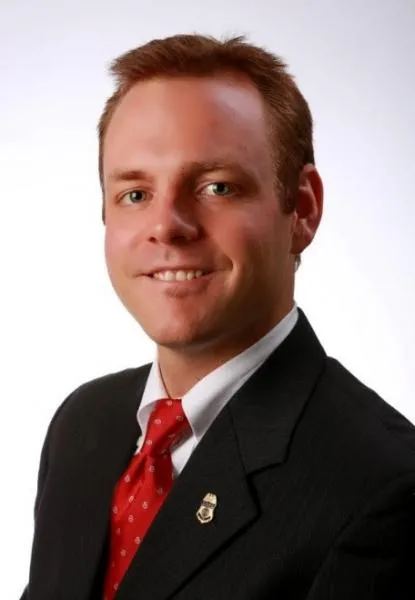Adam Sulewski was recently selected to the supervisory position of branch chief of the Trade Agreements Branch for the United States-Mexico-Canada Agreement (USCMA) Center. USMCA replaced the North American Free Trade Agreement (NAFTA). He started his career path with U.S. Customs and Border Protection (CBP) spring of 2009, when he applied to the Presidential Management Fellows (PMF) Program and interviewed with CBP's Office of International Affairs.

Adam Sulewski was recently selected
to the supervisory position of branch
chief of the Trade Agreements Branch
for the United States-Mexico-Canada
Agreement Center .
When asked why he chose to apply with CBP, he said, “I was really keen to apply because I knew it would be a challenging position.” Sulewski continued, “The day of my interview, the International Olympic Committee awarded the 2016 Summer Olympics to Rio de Janeiro, Brazil. The selecting official and I talked about the Olympics in the interview. That [the 2016 Olympics] led to a lot of engagement with Brazil for CBP, so it was a foreshadowing of things to come.”
In his first seven years with CBP, Sulewski stood up eleven Customs Mutual Assistance Agreements with partnering countries and saw them brought to completion. He participated in CBP's delegation for the renegotiation of NAFTA. Sulewski also helped educate other U.S. government agencies about CBP's trade enforcement and facilitation. He aided in the creation of a course on trade enforcement and facilitation at the U.S. Department of State's Foreign Service Institute, resulting in its designation as a permanent course in the Economic and Commercial Studies curriculum. For this and other outreach he performed to the U.S. government interagency community, Sulewski received a CBP Commissioner's Award. Commissioner's Awards honor the dedication and professional achievements of employees from across CBP, who performed above and beyond the call of duty and demonstrated a special dedication to CBP's mission.
However, after serving at CBP for seven years, Sulewski was ready to seek additional policy experience and a new perspective.
“I wanted to focus more on trade than I could in [CBP’s International Affairs department] and was recruited to join [the Department of Homeland Security’s] headquarters in their policy office, focusing on trade issues,” he said. “I was engaging with CBP, Immigration and Customs Enforcement's Homeland Security Investigation, and Transportation and Security Administration-Cargo multiple times a day.”
Two years later Sulewski decided it was time to come back to CBP. He missed “being in the weeds” and having his own portfolios to work.
He continued, “I really wanted to come back and focus on one portfolio,” he said. “I also was interested to work on implementing the USMCA, so I sought a role in CBP’s Office of Trade trade agreements team.”
He applied for and was selected to become the chief of the Trade Agreements Branch for the USMCA Center.
Sulewski offered some advice for newly appointed Presidential Management Fellows.
“Learn your agency,” he said. “What is your agency's purpose? What is its implementing legislation and what are its regulations, mission and values? What congressional committees oversee you? How do your appropriations work? How does your agency measure success? By what metrics? Who are your external stakeholders? Who is in your agency? This research is important and will be valuable as you are assigned projects that require this institutional knowledge and cross-office or interagency coordination.”
The PMF Program is administered by the Office of Personnel Management and is designed to attract people with professional degrees to public service in the hopes of developing a cadre of government leaders. The program is a two-year training and leadership development program at a United States government agency for U.S. citizens who have recently obtained a graduate degree. After completing PMF, agencies may convert PMFs to permanent federal civilian employees.
For more information about the PMF program, visit the Students and Recent Graduates webpage or email cbppathwaysprograms@cbp.dhs.gov.

